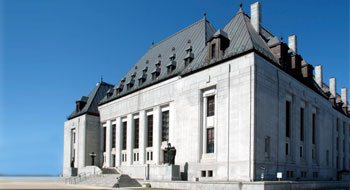
Non-pension retiree benefits such as healthcare and dental coverage can be an important factor in helping employers attract and retain talent. However, almost half of Canadian employers don't offer any non-pension retiree benefits.

The National Football League Players Association is increasing pension benefits for 1,722 players who played in the league between 1993 and 1996.

The federal government and the public sector have reached an agreement to make changes to the Public Service Health Care Plan (PSHCP).

The Ontario government will transition to a cost-sharing model for retiree benefits for employees retiring on or after Jan. 1, 2017.

The Supreme Court of Canada denied leave to appeal from a decision of the British Columbia Court of Appeal in Lacey v. Weyerhaeuser Company Ltd.

Workers are more confident about retirement than they were last year, according to a survey.

While many plan sponsors are backing away from retiree benefits, there is a growing focus by employers on helping employees approaching retirement to prepare for the financial burden that they may face on the health front.

Since the late ‘90s there has been a growing shift away from employers providing group health and dental coverage for retirees. Increasing healthcare costs, provincial de-listing of services, an aging population and changes to accounting rules are the main culprits that are eroding coverage for post-employment.

The daughter of a late John Helwig, former Chicago Bears player from the 1950s, is accused of illegally collecting money from an NFL pension plan years after her father's death.

Getting players in the Canadian Football League (CFL) to focus on planning for their retirement while they work on passing yards or tackles is a tough play to execute. But, with the average CFL playing career lasting just 3.2 years, Mike Morreale, president of the Canadian Football League Players’ Association (CFLPA) knows it’s important to get players to consider their future.